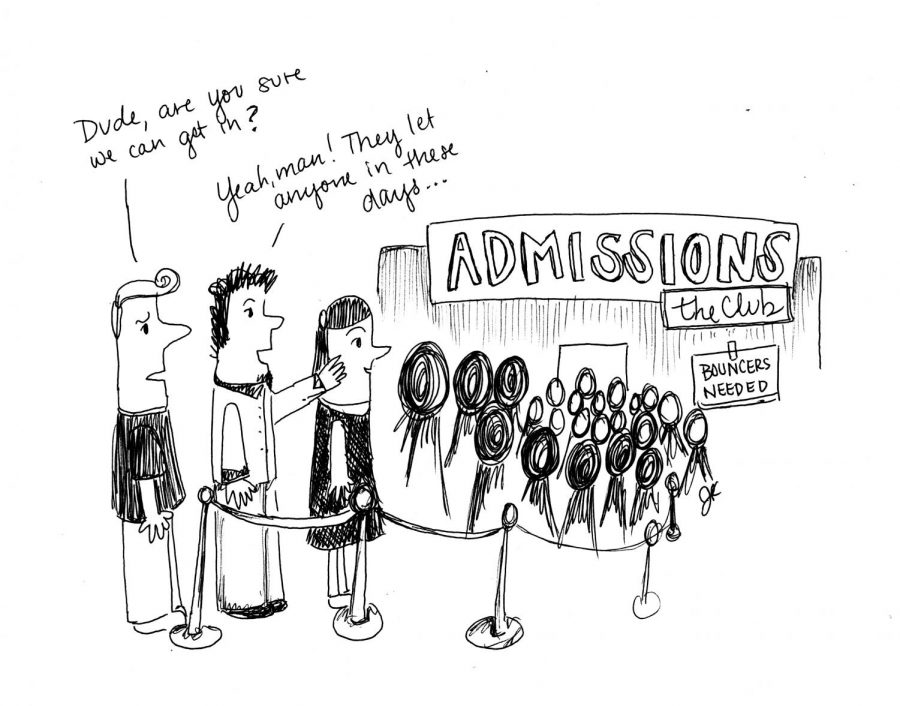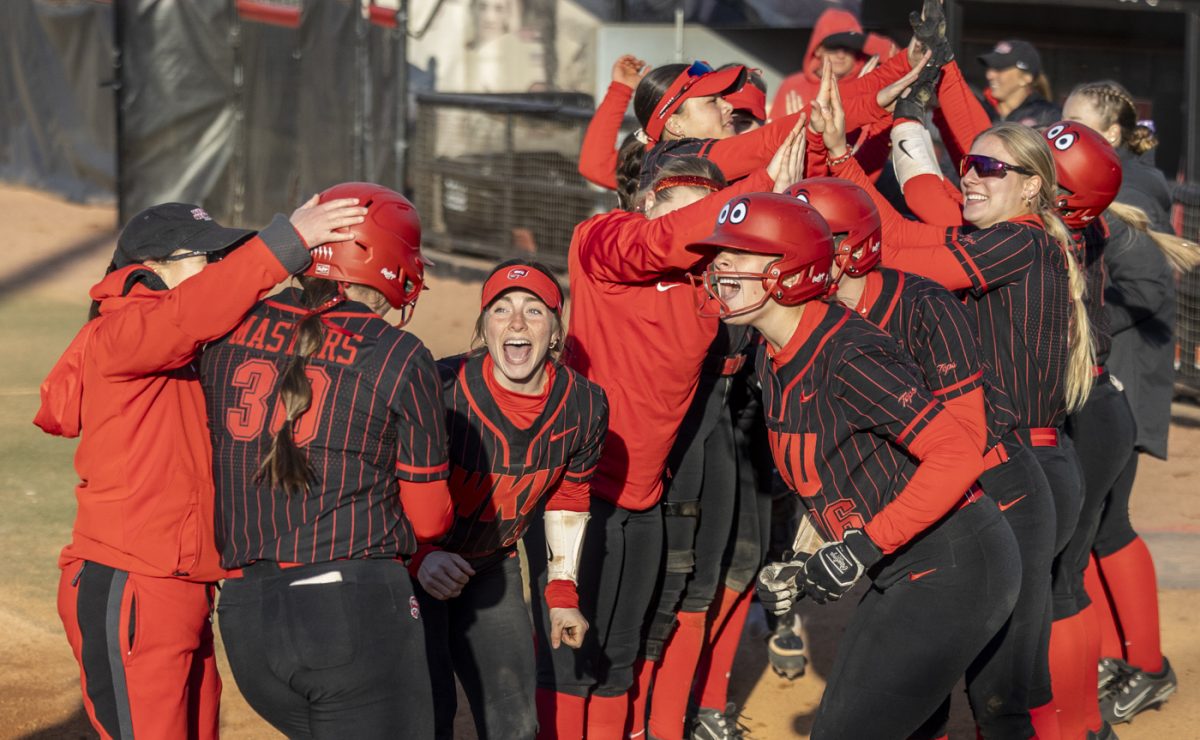EDITORIAL: Students are not scapegoats for financial woes
November 7, 2017
The Issue: One of the issues President Timothy Caboni is set to tackle in his first year is the poor retention rate and dwindling enrollment. Lower enrollment and poor retention means a greater financial or academic burden will be placed on the students. This could translate specifically into tuition increases or academic programs/services being cut in order to account for the ever growing deficit.
Our Stance: One potential solution to this issue, which President Caboni has already referenced, is to raise admission standards so students who aren’t prepared for college don’t waste their financial investments.
The most pressing issue the university currently faces, one that newly elected Faculty Regent Claus Ernst has already planned to tackle once fully in office, is WKU’s financial situation. The situation President Caboni has inherited, a roughly $10 million budget deficit, will only be made worse by the university’s current state of enrollment and retention.
According to Ann Mead, senior vice president for finance and administration, enrollment has dropped 3 percent which translates to approximately $2.3 million lost for the fall semester.
Another statistic that helps explain these poor numbers is WKU’s retention rate, which also dropped 3 percent from fall 2016 for first-time, first-year students.
In a meeting with College Heights Herald editors earlier this semester, Caboni emphasized ignoring students and burdening them with loan debt is “unfair” and “if [WKU] is going to make an offer of admission to someone, they must have a reasonable chance of success at this institution.”
While committing to a college is a serious financial decision for any student, there needs to be plans of action in place so the issues of low enrollment and poor retention don’t place a greater financial burden on students that are already enrolled. These additional burdens could take the form of an increase in the cost of tuition or academic programs and services being cut.
Following the logic of Caboni, it makes sense given our current financial situation to make changes to admission standards in order to improve retention.
According to WKU’s website, first-time freshmen are only required to meet one of the following requirements to be admitted: an ACT composite score of 20 or greater, an SAT combined score of 1020 or greater, an unweighted high school GPA of at least 2.50 or meet the required Composite Admission Index score, or CAI.
In addition to saving unprepared students from the burden of loan debt, increasing admission standards could potentially make WKU more attractive to students with a greater chance of academic success at the college level. Students with consistent success should, in theory, translate to a better retention rate and more money to cover the budget deficit.
This is not to say the university should forget about students who may not be ready yet to succeed in the courses the university has to offer. Students who are willing to put in the work to prepare themselves for college can still enroll in a community college through WKU’s dual enrollment program and then transfer to WKU once they are sure the cost of college will be worth it in the long run.
If WKU’s administration is going tackle this budget deficit without placing an additional financial burden on currently enrolled students, it is our opinion that raising admission standards is the way to go.













